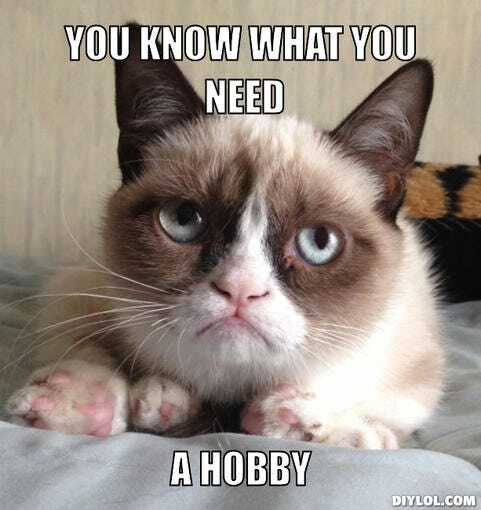Three possibilities come to mind:
Is there an evolutionary purpose?
Does it arise as a consequence of our mental activities, a sort of side effect of our thinking?
Is it given a priori (something we have to think in order to think at all)?
EDIT: Thanks for all the responses! Just one thing I saw come up a few times I’d like to address: a lot of people are asking ‘Why assume this?’ The answer is: it’s purely rhetorical! That said, I’m happy with a well thought-out ‘I dispute the premiss’ answer.
Confabulation.
Look at split-brain patients: divide the corpus callosum down the middle, and you effectively have two separate brains that don’t communicate. Tell the half without the speech centre to perform some random task, then ask the other one why they did that - and they will flat-out make up some plausible sounding reason.
And the thing is, they haven’t the slightest idea that it isn’t true. To them, it feels exactly like freely choosing to do it, for those made up reasons.
Bits of our brains make us do stuff for their own reasons, and we just make shit up to explain it after the fact. We invent the memory of choosing, about a quarter of a second after we’ve primed our muscles to carry out the choice.
I think a chunk of this comes down to our need to model the thoughts of others (incredibly useful for social animals) - we make everyone out to be these monolithic executive units so that we can predict their actions, and we make ourselves out to be the same so we can slot ourselves into that same reasoning.
Also it would be a bit fucking terrifying to just constantly get surprised by your own actions, blown around like a leaf on the wind without a clue what’s going on, so I think another chunk of it is just larping this “I” person who has a coherent narrative behind it all, to protect your own sanity.
We invent the memory of choosing, about a quarter of a second after we’ve primed our muscles to carry out the choice.
Where can I read more about this?
Perhaps it is the illusion of choice and the choice you make was always going to be that one due to all of the events that shaped you and the events that shaped the people that shaped you etc all the way back to the big bang.
I contemplate this from time to time.
deleted by creator
Here’s my take: the answer is emergent phenomena. We live in a very complex system and in complex systems there are interactions that can only be predicted using systems of equal or higher complexity. So even in case everything is predetermined, it would still be unpredictable and therefore your decisions are basically still up to you and the complex interactions in your brain.
exactly. that for me is in fact the definition of free will
actually this is the definition that first came up on a search
“the power of acting without the constraint of necessity or fate; the ability to act at one’s own discretion”
so yeah we do have free will. the rest is philosophical masturbation
You can also find the definition of magic or telekinesis, but that doesn’t mean we have them, and not all philosophical question are just “masturbation”. It is an interesting question. It is worth taking free will at least axiomatically as our perception of that freedom even if it is truly deterministic.
I think this is probably it. I think this argument is strongly related to the idea of consciousness as an emergent property of sensory experience. I find it simple to imagine the idea of a body with no will or no consciousness (i.e., a philosophical zombie). But I find it very difficult, almost impossible, in fact, to imagine a consciousness with no will, even if it’s only the will to think a given thought.
Do we have free will to think a given thought? All of my thoughts just suddenly appear in my mind or are connected to previous thoughts that suddenly appeared in my mind.
I mean, if I said to you, ‘Calculate 13x16’ (or some other sum you don’t know off the top of your head) you could either do it or not do it. That would be a willed choice, whether or not you knew the answer.
My thoughts would be presented based the fact that you’ve asked me to calculate something. At that point, past experiences would guide my path forward. If I felt like doing math, I may do it, if I had poor childhood experiences in math class, I probably wouldn’t. At the end of the day, it’s all based on history or current questions/feelings. In every scenario my thoughts are presented to me. To prove it, ask yourself what your next thought will be. If you’re honest with yourself, you’ll see you can’t answer that question and when you try and force a thought direction, that direction itself is based on your knowledge from the past and that thought was also presented to you.
It’s wild because it absolutely feels like we have free will, but it sure doesn’t look like it. 🤷♂️
This is the problem of original intentionality. There are studies on it, for instance they found that with an mri they can detect when you have come to a decision before your conscious mind realizes you have. Some processes in our brain are outside of our control, because the brain is not just the neocortex but also includes tens of other structures that evolved separately with specific hard-coded purposes, but that doesn’t mean they are not working as a team. I think in any case you are still reaponsible for the decisions you take.
A better question is, is there any difference between the illusion of free will and actual free will. Is there some experiment you could conduct to tell the difference?
Depends, who’s choosing the experiment?
If it’s the illusion of free will then whoever constructed it most likely made sure we wouldn’t have access to those kinds of experiments, or we wouldn’t think of or choose to do them.
Why assume that an illusion must have a constructor?
We don’t have a free will.
We do have a free won’t.
I enjoy either the free will or the illusion thereof not to torment myself with such unanswerable questions!
Gooooood choice
I can’t think of any good reason why we would have such an illusion.
Why are we assuming we don’t have free will? We do. Its not total freedom, our freedom is contingent on existing circumstances, but hard determinism is easily disprovable.
The idea that there is no free will is a mind fuck that keeps you from questioning your reality. You might as well ask, “assuming the earth is flat, why does the stick disappear on the horizon?”
This is a nice and brief video that I’ve found persuasive. https://youtu.be/eELfSwqJNKU
If you throw a pair of dice, do they still have to roll if their final positions are predetermined from the point that you let go?
One view is that even a deterministic mind still must execute. An illusion of the capacity to choose between multiple options might be necessary to considering those options which leads to the unavoidable conclusion.
Dice do not choose where they roll.
They also do not pretend choosing, or tell themselves any bullshit…
I have heard somewhere that some people seemed to believe that behind each human’s actions, there is some kind of “daemon” that is invisible, but moving the humans like puppets.
This is conceptualized in the theater mask, through which one can speak.

The daemon speaks through the human as a theater actor would speak through a mask. (The latin word for that mask is “persona” (literally “sound-through”) and that’s why we call a person a person today (because they are controlled by a daemon who speaks through them)).
My deamon is now telling you this theory is convoluted and stupid.
If I found out that I don’t have free will, I would start trying to gain it back immediately.
What if you found out that free will is an inherently flawed concept and therefore impossible to conclusively obtain
if you found out that free will is an inherently flawed concept
I also cannot imagine finding out that the hole in my ass is bigger than I am.
Then I have some bad news for you, about calculating the interior volume of a cylinder. You’ve got a lot of hole coiled up inside you
What if you never had it and never can have it because its not a havable thing
Pot kettle black
For the same reason that I feel like I’m still right now, while I’m actually spinning and hurtling through space at incredible speed.
deleted by creator
This is the kind of pointless shit that I think of when I smoke too much. If you have a pipe in your hand, SIT IT DOWN 😜
No, now I’m old and don’t smoke anymore, but my mind still does this stuff to me anyway.
I think its because we’re only just now coming to terms with the fact that we’re simply a collection of desires, the culture we were born to and stories we tell ourselves. In keeping, we had to have a story to tell ourselves and free will existing is the more compelling of the two.
I don’t think there’s an evolutionary purpose. To me, we just became far more self aware than our limited knowledge of the world we find ourself in could cope with and its more of a coping mechanism than anything else.









